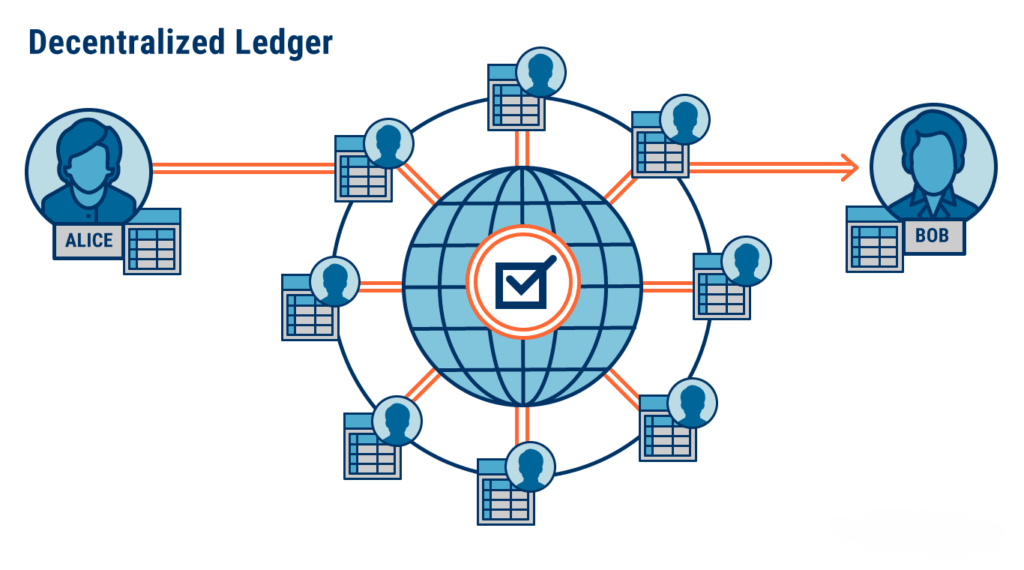Enterprises technology must continuously adapt to technological changes in today’s lightning-fast and fiercely competitive marketplace to acquire a competitive edge. In the modern world, organizations now function in a completely new way because of the swift advancement of enterprise technology, which has allowed them to improve productivity, streamline procedures, and provide better client experiences.
Thus, understanding the need here in this post, we’ll examine Enterprise Technology’s disruptive capacity and how it may impact how firms operate in the future. Because in today’s growing world, enterprise is the need of life and needs to fulfil daily energy needs in a modern way with the help of technology, which helps to survive in the technological world.
What Is Enterprise Technology?
Enterprise technology encompasses digital, software, and hardware products designed to tackle the complex needs of significant businesses. It includes tools and systems for decision-making, operations, data management, communication, and other business processes. Developed for large-scale organizations, it focuses on scalability, security, and system integration, aiming to improve output, workflow, effectiveness, and innovation.
Some Components Should be kept in consideration.

Here Are Some Major Components Necessary For Enterprise Technology
ERP systems consolidate corporate operations, including finance, HR, supply chain, and customer relationship management, providing real-time data and insights for efficient enterprise technology.
Decision-Making And Streamlining Processes
CRM systems enable businesses to track sales, manage customer contacts, analyze information, and enhance customer satisfaction, marketing initiatives, and connections.
Organizations can utilize tools and platforms to analyze and showcase data from various sources, improving performance and strategic planning. Business analytics and intelligence enable actionable insights, decision-making, and identifying trends. Enterprise technology includes tools for cooperation and communication, such as project management software, email systems, messaging applications, and video conferencing equipment.
Enterprise security solutions safeguard sensitive information and assets against cyberattacks and data breaches, encompassing access control, data encryption, network security, and security monitoring technologies.
Cloud-based technologies provide scalable, on-demand computing, storage, collaboration, remote access, and reduced on-premises equipment costs.
AI and machine learning technologies enable organizations to automate procedures, analyze vast datasets, and gain valuable insights into decision support systems, fraud detection, predictive analytics, and customer service.
Using AI To Unify Logistics
Enterprise Technology is mainly dependent on artificially intelligent technology (AI). It allows firms to automate tedious activities, improve statistical capabilities, and uncover insightful information. For example, AI-powered computers can manage consumer inquiries, speeding up response times and increasing general satisfaction. Additionally, firms can analyze enormous amounts of data thanks to machine learning algorithms, enabling predictive analytics and better decision-making.
AI has a significant impact on increasing operational effectiveness. Businesses may streamline procedures like inventory management, supply chain logistics, and production scheduling by utilising AI-powered algorithms. This improves efficiency, cuts costs, and guarantees prompt delivery of goods and services.
Block Chain-Based Distribution Transformation
Blockchain technology provides a secure and transparent way to trace and manage transactions in the supply chain. It enhances stakeholder confidence, reduces fraud, and increases visibility. Reducing procedures, fostering collaboration, enabling intelligent contracts, and facilitating product traceability improve supply chain efficiency. Blockchain transactions can be safely recorded and verified, preserving product integrity and authenticity. Smart contracts automate business agreements, accelerating workflows and cutting costs. So it is suitable for enterprise technology.

Making Use Of IoT’s Power
The Internet of Things revolutionizes organizations by providing real-time monitoring, automation, and preventative maintenance. Connected devices and sensors enable better decision-making and preventive maintenance methods. IoT promotes manufacturing, healthcare, and smart city innovation, enabling predictive maintenance and optimizing maintenance schedules. Real-time sensor data helps identify potential issues before downtime or failures, while remote monitoring reduces human audits and improves productivity.
Recognizing The Cloud
Enterprise Technology s central pillar of cloud computing offers scalable, adaptable, and affordable solutions for companies of all sizes. Organizations can quickly deploy apps, store and analyze enormous volumes of data, and interact seamlessly across teams and geographies thanks to held in the cloud infrastructure and software services. Adoption of the cloud also makes remote work possible, ensuring corporate resilience and continuity in an increasingly digital world.
Enterprise technology can lower infrastructure costs, increase scalability, and improve data accessibility by moving to the cloud. The cloud system provides the best security to your data, which grants you integrity and is always kept confidential.
Advantages Of Enterprise Technology
Enterprise technology automates tasks, optimizes procedures, saves time, and boosts productivity by optimizing resource allocation, reducing redundancies, and utilizing innovative computer programs.
Enterprise technology improves collaboration among departments, teams, and employees, enhancing teamwork, knowledge sharing, and innovation through communication, project management systems, and shared documentation repositories.
Enterprise technology enables businesses to gather, analyze, and interpret vast amounts of data, gaining valuable insights into customer behaviour, market trends, and operational performance. From this knowledge, we can make good strategies that allow us to adapt from time to time and protect from loss as well.
Enterprise technology Cloud computing technology offers scalability and flexibility, allowing firms to change resources to suit changing demand and company growth. Businesses can quickly adjust to shifting market conditions thanks to this scalability’s cost-efficiency and agility.
Enterprise technology helps us make an excellent customized goods plan for customers. Due to this, we track them from time to time, monitor client experience and interaction, and track the record of operating history by CRM system.

Disadvantages Of Enterprise Technology
Enterprise technology, in the end, is a helping hand. On the other hand, it’s a highly increasing dependency on the technology.
Enterprise technology is costly because expensive machinery is required to build a good and effective setup.
In the future, machines will take the place of humans. Exactly enterprise technology is doing the risk of job cutoff increasing or unemployment’s increasing ultimately.
As we know, the machine is also made by a human, so enterprise technology has well risk of error there.
Although a high amount of investment need for this, and big drawback of enterprise technology because it’s now a piece of cake to take a huge amount of investment.
The Increase Use Of Electricity With The Advent Of Technology
Enterprise technology has a high chance of hacking data, so many it or commuter experts also need to keep check and balance. Well, it’s not granted that your data is saved. It may be hacked at any time, any second, or damaged by any means as well.
New business technologies often require changes to workflows, processes, and staff roles. Employee resistance can be a significant obstacle, as some workers may resist learning new technology or fear automation taking over their jobs, affecting morale and productivity during the transition.
Enterprise technology creates new security vulnerabilities, necessitating strong cybersecurity protections to safeguard sensitive data, intellectual property, and consumer information. However, routine security procedures can still pose data breaches, hacking, or unauthorized access risks.
Enterprise technologies frequently need particular knowledge and abilities to function well. Training staff members to use these technologies properly can take a lot of time and money. Furthermore, because technology is developing quickly, businesses must spend money on ongoing training to maintain staff members current and fill up any existing skill shortages.
Enterprise technology is susceptible to glitches, bugs, and technical issues, causing operational disruptions and impacting output, client satisfaction, and revenue production. Organizations must have backup systems and contingency plans to mitigate risks.
Adopting specialized enterprise technology could make you dependent on one vendor or service provider. Due to contractual constraints or the complexity of data migration, enterprises may eventually find it challenging to switch to alternative solutions or negotiate advantageous terms. This vendor lock-in can reduce flexibility and raise expenses over time.

How Much Practical Implementation Of Enterprise Technology
Large firms can fully embrace enterprise technology by dedicating IT departments and budgets. They use business intelligence tools, CRM platforms, and ERP systems to streamline operations, improve decision-making, and enhance customer experiences.
SMEs need more resources to implement enterprise technology. Advancements in cloud computing and SaaS models have made technology more accessible and affordable. They often start with targeted solutions like CRM systems for sales and customer management. As some businesses grow, they become financially strong and expand their technologies, including accounting, inventory management, etc.
Conclusion
Enterprise technology enables us to grow in the light-fasting world more rapidly. On the door for new business opportunities, make innovation, and remain ahead of the competition by leveraging the power of AI, blockchain, IoT, cloud computing, and robust cyber security measures. If you want to succeed in the world of enterprise technology, you should have a better well, developed plan for business adaption with time in business as well as adapt the good thing from others that help you to grow faster.
Although funding is the second most primary importance of the company, you need funding to be something, so try to grasp some funding as well. The business team also try to consider drawbacks and challenges risk for the business due to minimizing the risk and maximizing the profits for benefits. In addition to this, always try to be consistent in your work hardship is everywhere but keep the focus on your goals. The pros and cons are always part of everything, but you should make your decision-making ability good so you can decide correctly.



















